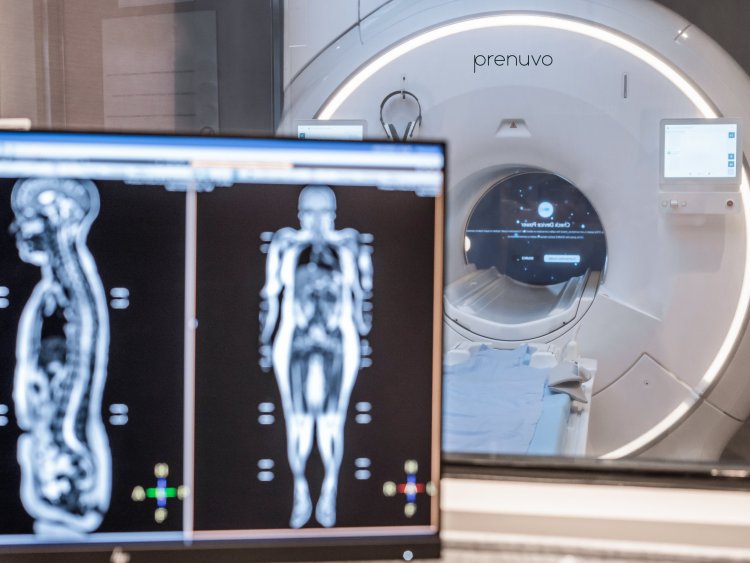Exploring Heart Health: The Role of CT Scans in Cardiovascular Assessment
A heart CT scan andan angiogram scan are both modern heart health scans, but there exists a difference between the two. A heart scan is completely non-invasive.

Cardiovascular diseases remain to be one of the main causes of death all around the world. As per studies, the number of deaths has declined in the last five years due to proactive measures and advanced heart health techniques. However, it is not fully controlled yet. Nevertheless, advanced healthcare systems and strategies are gaining widespread popularity due to their active role in detecting cardiovascular diseases before the appearance of any symptoms. The heart scans are one example of proactive measures. In this post, we will explore heart health and the role of CT scans in cardiovascular assessment.
What is a Heart Scan?
A heart CT scan is also known as a computed tomography heart scan. It is a non-invasive procedure that relies on the X-rays to capture detailed and cross-sectional images of the heart. It helps in detecting any abnormality within the heart, including the narrowing or blockage of the blood vessels. Another name for a heart scan is a CT coronary scan, which looks into arteries. This helps in detecting the presence of calcium buildup within arteries that may cause cardiac arrest. It is a form of advanced heart health care as the scan offers a view of the internal structures of the heart. In addition, the process is completely non-invasive, unlike traditional angiography.
What are the Benefits of a Heart CT Scan in Cardiovascular Assessment?
A heart scan holds great significance in the early detection of cardiovascular diseases. Apart from that, some other benefits of it include the following:
-
It is an effective tool in detecting coronary artery disease, which often causes a major cardiac arrest. In addition, it helps detect other heart diseases.
-
The process is painless and noninvasive, which means that it will cause minimal discomfort compared to traditional testing and scans.
-
These scans have a high accuracy rate. If they detect the problems, then the doctors suggest further screening for accurate diagnosis.
-
The scans present the internal condition of the heart. Thus, they help in developing treatment plans for recovery. In addition, they help evaluate the effectiveness of a treatment.
In some conditions, most doctors combine the heart CT scan and virtual angiogram scan, which offers a comprehensive view of the heart.
How Does a Heart CT Scan Work?
The process of a heart scan is simple.
-
You have to avoid drinking caffeine and eating food a few hours before the scan. The radiologist or doctor will guide you about this.
-
Once you reach the testing center, you may be asked to wear a loose gown and remove any kind of jewelry. If you have any type of infection or allergy, then you must inform your doctor prior to the scan.
-
You will lie on the table while the scanner revolves around you emitting X-rays to take images of the heart from different angles.
-
There is no recovery time for the scan. You may immediately return to your routine.
Who Should Consider a Heart CT Scan?
You should consider a heart scan if you face any of these situations.
-
If you have a family history of hypertension, cardiac arrest, or heart cancer, then you must go for the scan with the suggestion of your doctor.
-
If you are the age of 45 and bear any sign of shortness of breath, tightness in cthe hest without strenuous exercise, or weight loss for no reason, then it is a sign for you to go for a scan.
Heart CT Scan vs. Angiogram Scan
A heart CT scan andan angiogram scan are both modern heart health scans, but there exists a difference between the two. A heart scan is completely non-invasive. On the other hand, an angiogram scan is partially invasive as it involves the injection of dye for identifying and analyzing the flow of blood within arteries and blood vessels. In addition, angiography is used for more in-depth analysis and for making effective treatment plans for patients. In that regard, both hold significant importance.
What is the Future of Heart Health and Advanced Diagnostics?
The future of heart health diagnosis is promising. With the rise of AI and ML, detection of cancer and other heart issues has become much easier. In assisting, the integration of AI in making doctors diagnose different abnormalities and problems without going into detail.
Conclusion
Cardiovascular diseases are one of the main causes of death all around the world. However, advanced healthcare techniques and systems have been playing an integral role in overcoming the number of deaths. The early detection of the diseases is one aspect that allows for better treatment and thus prevents death. In that regard, if you have any symptoms of CVs, then you must consult your doctor and visit ViaScan of Las Colinas for any kind of heart scan or screening for an effective diagnosis or evaluation.
What's Your Reaction?
















